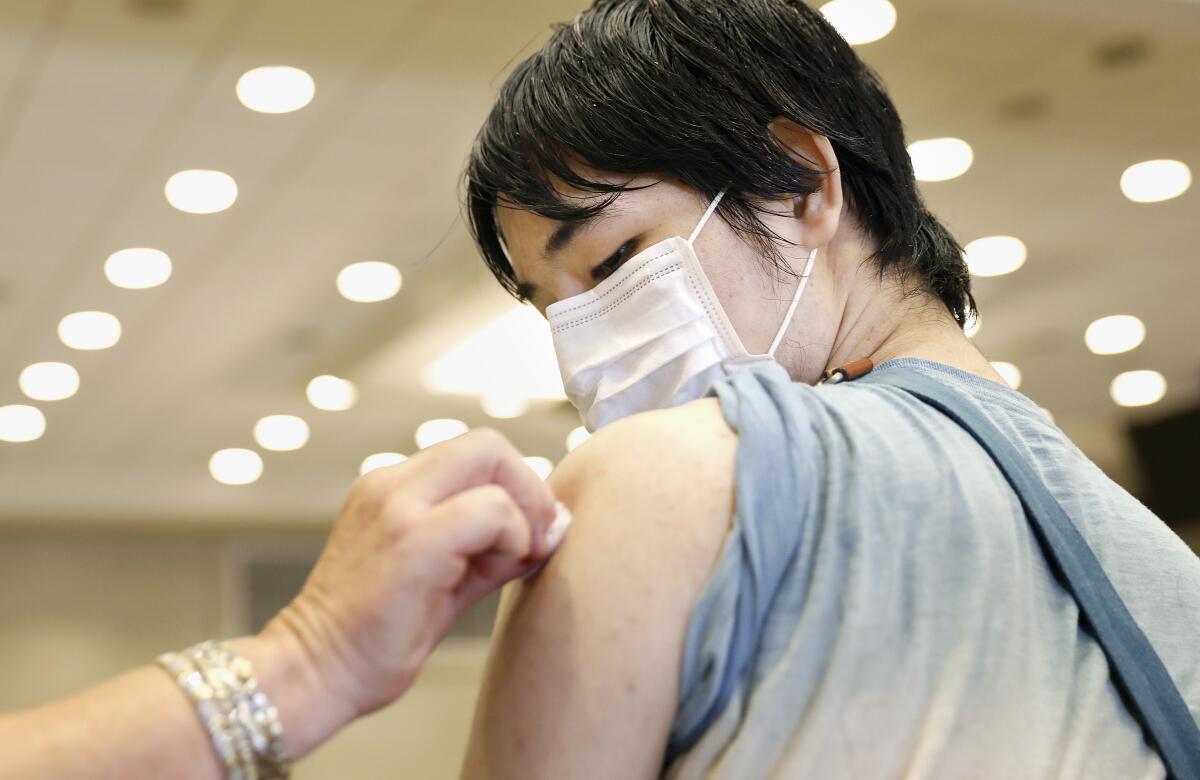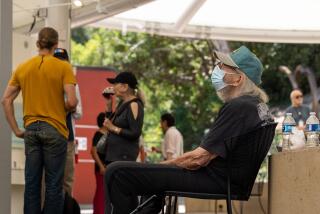The Delta variant of COVID is coming for the unprotected

- Share via
With vacations back on the schedule and weddings and other summer activities in full swing in Southern California, it’s easy to forget that a pandemic is still raging.
Despite the efforts of public health officials to curtail infections and the work by scientists to develop vaccines in record time, COVID-19 is not done with us yet. That much is clear from the surge in new cases in California and Los Angeles after weeks of steep declines in the spring. Officials in Los Angeles County reported 3,000 new cases in just three days — exponential growth from just a month ago, when new daily cases were counted in the low hundreds. It’s a similar story across the state, the nation and the globe.
Though it wasn’t wholly unexpected for infections to rise after Gov. Gavin Newsom lifted the state’s pandemic closures and mask mandates on June 15, it’s troubling nonetheless.
The jump in coronavirus cases is being driven by the highly contagious Delta variant, which is now the dominant strain in California and the U.S., and which is finding fertile breeding ground among the millions who are not yet fully inoculated — including almost half of Californians.
Some of the unvaccinated have a valid reason for skipping the jab. Kids younger than 12 aren’t eligible for inoculation yet, and some people have been advised by their doctors to not get vaccinated because of specific health problems they have. But for the most part, the ranks of the recalcitrant are made up of people who could be vaccinated safely and have easy access to vaccines — but have chosen, either deliberately or by inaction, to take their chances with a deadly infection, come what may.
And what may well come is sickness and death. All but a tiny fraction of the people who are dying — yes, scores of Americans are still dying every day from COVID-19 infections — are unvaccinated. Breakthrough infections of the fully vaccinated do happen; vaccines in general don’t work as well for some people, with the exceptions concentrated among the elderly and those with compromised immune systems. But those breakthrough cases are exceedingly rare, and its rarer still for them to be severe enough to result in hospitalization.
At least for the moment, that is. As the Delta variant shows, mutations can make the virus more formidable. And every new infection, no matter how mild, offers a new opportunity for mutation. What if that next mutation can burst through the defenses of current vaccines? What if new strains attack young children, who can’t yet be inoculated and who so far have been largely spared from serious illness?
After more than a year of plague, politics and polemics, we are due a little celebration. But that will be short-lived if COVID-19 gains a new toehold this summer and authorities are forced to respond with new restrictions. No one wants that to happen. Those who have put off vaccination hoping that an ebb in infections meant they were safe must recognize the growing risk and stop waiting to get their shots. And all of us, vaccinated or not, should continue to take precautions when out in public.
More to Read
A cure for the common opinion
Get thought-provoking perspectives with our weekly newsletter.
You may occasionally receive promotional content from the Los Angeles Times.









